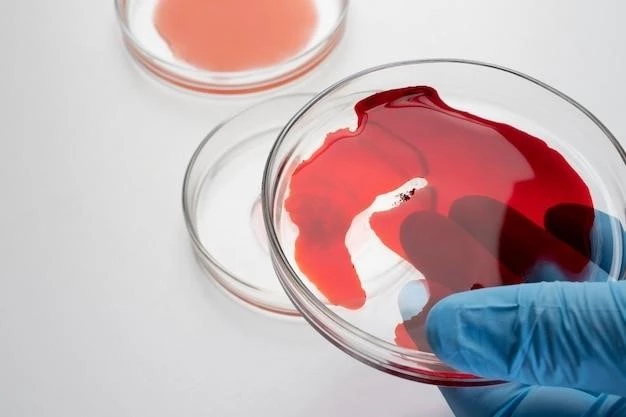Recognizing the symptoms of hypoplastic anemia is crucial for timely diagnosis and treatment. Be aware of fatigue, paleness, and increased infections.
Understanding Hypoplastic Anemia
When understanding hypoplastic anemia, it’s important to recognize symptoms like fatigue, paleness, dizziness, and increased susceptibility to infections. Prompt medical attention, such as a blood test, is essential for an accurate diagnosis and appropriate treatment plan. If you experience any of these symptoms, consult a healthcare professional for further evaluation and management.
Common Symptoms
Common symptoms of hypoplastic anemia include shortness of breath, rapid heartbeat, headache, and chest pain. If you notice these signs, seek immediate medical attention to determine the underlying cause and appropriate treatment. It’s crucial not to ignore these symptoms as they can indicate a serious health condition that requires medical intervention. Consult a healthcare provider for a proper evaluation and management plan.
Understanding the causes of congenital anemia is essential. Genetic factors, blood disorders, and nutritional deficiencies can contribute. Seek medical advice for personalized management.
Definition of Congenital Anemia
When understanding congenital anemia, it’s crucial to know it is inherited or present at birth due to genetic mutations affecting red blood cell production; Causes may include conditions like sickle cell anemia or thalassemia. Consult a medical professional for accurate diagnosis and treatment options tailored to your specific condition.
Common Causes
Common causes of congenital anemia include genetic disorders like sickle cell anemia, thalassemia, and Fanconi anemia. Other factors may include exposure to toxins, infections during pregnancy, and certain medications. Understanding these causes can help in early detection and management. Consult a healthcare provider for proper evaluation and personalized treatment.
Exploring various medical treatments can help manage anemia effectively. Consult healthcare professionals for personalized care.
Medical Treatments
Medical treatments for anemia may include iron supplements, blood transfusions, or medications to help stimulate red blood cell production. In severe cases, bone marrow transplants could be considered. It is vital to discuss the options with healthcare providers to determine the most suitable treatment plan for your specific condition.

Lifestyle Changes
Adopting a healthy lifestyle can complement anemia treatment. Encourage exercise, stress management techniques, and a balanced diet rich in iron, vitamin B12٫ and folate. Stay hydrated٫ get enough rest٫ and avoid smoking and excessive alcohol consumption. Consult healthcare professionals for personalized advice on lifestyle modifications to support your recovery from anemia.
Identifying anemia in children is crucial for their well-being. Watch for signs like pale skin, fatigue, and irritability.
Recognizing Anemia in Children
Recognizing anemia in children involves paying attention to symptoms like lack of energy, pale appearance, and irritability. A doctor can confirm diagnosis through blood tests. Early detection and appropriate treatment are essential for the child’s growth and development. Ensure your child receives regular pediatric check-ups for prompt intervention if anemia is suspected.
Treatment Approaches for Children
When addressing anemia in children, treatment options may include dietary changes, iron supplements, and in severe cases, blood transfusions. Close monitoring by healthcare professionals is crucial to ensure the child’s well-being. It is essential to follow the recommended treatment plan and attend regular follow-up appointments for proper management of anemia in children.
Learn effective strategies to manage anemia symptoms. Consult healthcare providers for personalized guidance.
Symptom Management Techniques
Managing anemia symptoms involves proper nutrition, adequate rest, and stress reduction. Iron-rich foods, hydration, and regular exercise can help alleviate fatigue and weakness. Monitor symptoms closely and seek medical advice for tailored strategies. Balancing activities with rest is key to improving overall well-being while managing anemia effectively.
Understand how genetics play a role in anemia. Consult genetics specialists for personalized insights.
Genetic Influences on Anemia
Genetic influences on anemia can stem from inherited conditions affecting red blood cell production or function. Genetic testing can provide valuable information about predisposition to anemia. Discuss with healthcare providers about the benefits of genetic testing in understanding your specific risk factors and planning appropriate management strategies tailored to your genetic profile.
Genetic Testing
Genetic testing can reveal crucial insights into the genetic factors contributing to anemia. It can help identify hereditary conditions, assess the risk of inherited anemia, and guide personalized treatment plans. Consider discussing genetic testing with healthcare professionals to determine the appropriateness and benefits of genetic analysis for better understanding and managing the genetic aspects of anemia.
Explore dietary changes to improve anemia symptoms. Consult nutrition experts for personalized recommendations.
Diet Modifications
Optimizing your diet can play a significant role in managing anemia. Focus on consuming iron-rich foods like leafy greens, lean meats, and legumes. Vitamin C-rich foods can enhance iron absorption. Avoiding caffeine and calcium-rich foods during meals can also help. Consult with a nutritionist to create a balanced meal plan that addresses your specific nutritional needs for supporting your overall health and managing anemia effectively.
Exercise and Stress Management
Incorporating regular exercise can boost energy levels and improve overall well-being for individuals with anemia. Activities like walking, cycling, or yoga can be beneficial. Additionally, stress management techniques such as meditation, deep breathing exercises, and adequate rest can help reduce stress levels, which may contribute to anemia symptoms. Consult healthcare providers for guidance on safe and effective exercise routines and stress management strategies tailored to your needs.
Understand the diagnostic process for hypoplastic anemia. Seek medical assistance for accurate evaluation.
Diagnostic Process
Diagnosing hypoplastic anemia involves a thorough physical exam, blood tests, and possibly a bone marrow biopsy. These tests help determine the cause and severity of the condition. It is crucial to follow your healthcare provider’s guidance throughout the diagnostic process to ensure accurate results and appropriate treatment. Timely diagnosis is key to managing hypoplastic anemia effectively.
Medical Consultation
Schedule a medical consultation for suspected hypoplastic anemia. Discuss symptoms, medical history, and any concerns with a healthcare professional. Be prepared to undergo tests and evaluations to accurately diagnose and start appropriate treatment. Collaborating with your healthcare team is essential in managing hypoplastic anemia and improving your overall health. Follow the guidance and recommendations provided by your medical provider for the best outcomes.
